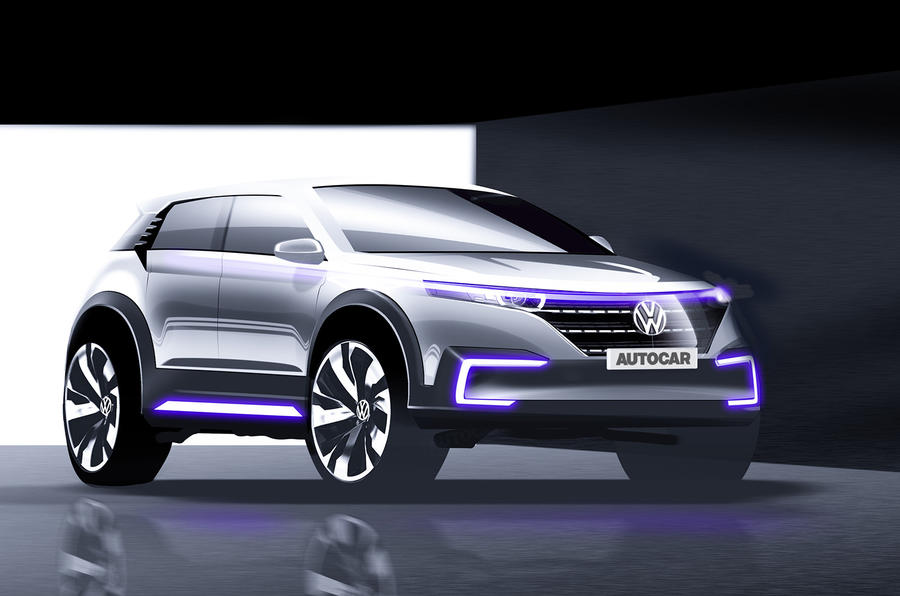Volkswagen will unveil a new electric hatchback concept called the ID at the Paris motor show as a precursor to a range of up to five battery-powered vehicles already granted a developmental green light by VW brand boss Herbert Diess.
The all-electric Volkswagen ID concept has now been revealed
The move is part of the ambitious Strategy 2025 plan aimed at netting the German car maker up to one million electric car sales annually by the middle of the next decade.
The concept will sport a new design lineage that Wolfsburg sources suggest will influence the appearance of the new generation of electric cars.
The five-seat concept is described by Diess as being slightly smaller than a Volkswagen Golf but with interior space comparable to that of a Volkswagen Passat and an electric range of 400-600km (250-370 miles). That is roughly double the reach of the recently upgraded BMW i3, which will rival VW’s production model.
The concept, which is undergoing construction at the company’s engineering headquarters with the working title Nuv-e (New Urban Vehicle Electric), is set to preview VW’s new modular electric architecture (MEB) platform in detail. It will use scalable electric motors, axles and suspension to allow for models ranging from the supermini to luxury segments, according to a senior VW source with knowledge of the company’s electric vehicle plans.
The advanced new structure was first hinted at by the Budd-e concept revealed at the Consumer Electronics Show in Las Vegas in January. It is being developed in parallel with a larger electric car platform, work on which is already well under way at Audi as the basis for the production version of its e-tron quattro concept.
Sources suggest the hatchback will be the second stand-alone electric model to be on global sale in 2020. According to current planning, it will be preceded by a production version of the Budd-e MPV, due out in 2019.
Following the unveiling of the new EV concept in Paris, VW plans to make public other new zero-emission models. These include the further-advanced version of the Budd-e, which is billed by insiders as a modern-day Microbus, along with an all-electric successor to its flagship Phaeton (known internally as the X-BEV), a high-riding crossover (currently called CUV-e) and a sports car in the form of either a coupé or a roadster.
VW’s fresh emphasis on electric vehicles comes as part of a comprehensive revision of its future model plans following the diesel emissions test rigging affair that has so far cost the company more than £20 billion. Among the markets being targeted heavily by VW in its bid to reach a million EV sales a year by 2025 is China.





Add your comment